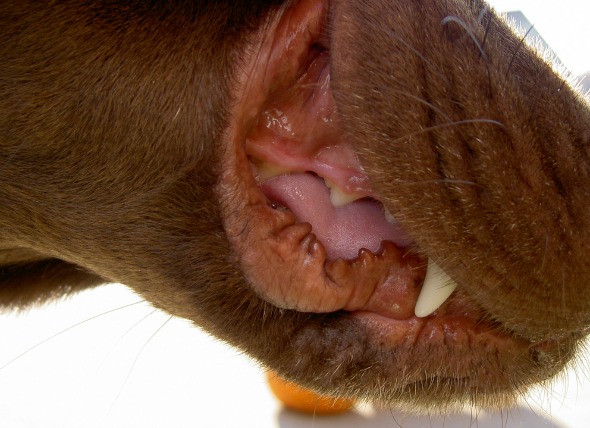

Puppy strangles, or juvenile cellulitis, is a nodular and pustular skin disorder that affects puppies. It usually occurs between the ages of three weeks and four months, and is rarely seen in adult dogs. The face, pinnae (outer part of the ear), and salivary lymph nodes are the most common sites to be affected. The cause of this condition is unknown, but there are breeds that have been shown to be predisposed to it, including golden retrievers, dachshunds, and Gordon setters.
Your veterinarian will conduct a skin biopsy (tissue sample) to determine what is causing the lesions.
If your puppy is diagnosed with puppy strangles, early and aggressive therapy will be required to avoid severe scarring. Corticosteroids are the treatment of choice. Your veterinarian may prescribe a topical (external) ointment to soothe and ease the pain, and as an adjunct to corticosteroid medication. In rare resistant cases, chemotherapy may be required. Adult dogs with panniculitis (inflammation under the skin) may require longer therapy. Antibiotics may be also prescribed if there is evidence of a secondary bacterial infection.
Most cases do not recur, but scarring may be a permanent problem, especially around the eyes.
 Head Tilt, Disorientation in Dogs
Idiopathic Vestibular Disease in Dogs
Observing a
Head Tilt, Disorientation in Dogs
Idiopathic Vestibular Disease in Dogs
Observing a
 Rabies in Dogs
Rabies is a severe, and often fatal, viral polioe
Rabies in Dogs
Rabies is a severe, and often fatal, viral polioe
 Liver Tumors in Older Dogs
Hepatic Nodular Hyperplasia in Dogs
Hepatic nodul
Liver Tumors in Older Dogs
Hepatic Nodular Hyperplasia in Dogs
Hepatic nodul
 Swollen Gums in Dogs
Gingivitis in Dogs
Gingivitis is a reversible inf
Swollen Gums in Dogs
Gingivitis in Dogs
Gingivitis is a reversible inf
 Nerve Sheath Tumor in Dogs
Schwannoma in Dogs
Schwannomas are tumors that or
Nerve Sheath Tumor in Dogs
Schwannoma in Dogs
Schwannomas are tumors that or
Copyright © 2005-2016 Pet Information All Rights Reserved
Contact us: www162date@outlook.com